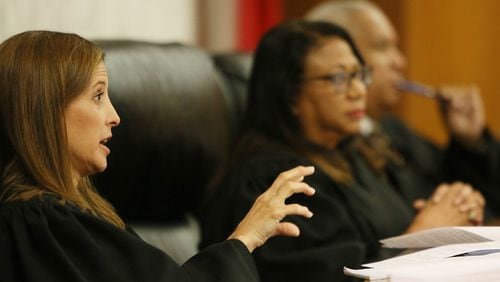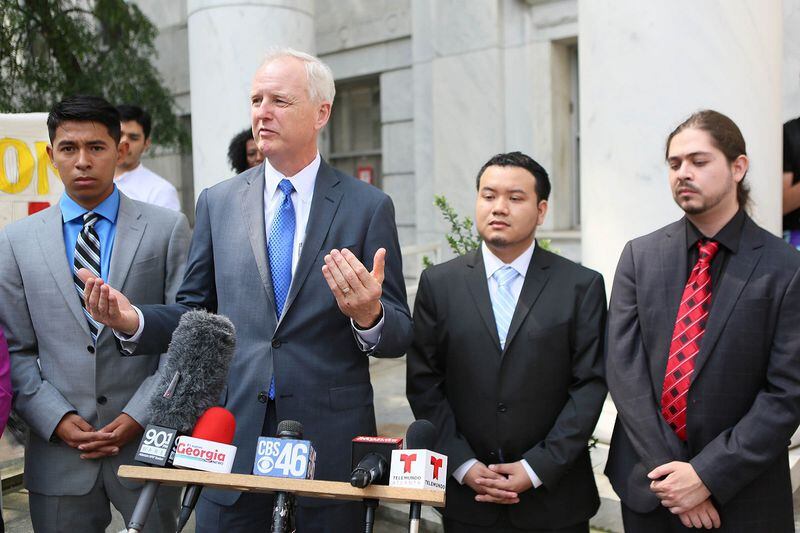The state Court of Appeals on Thursday heard arguments over whether young immigrants who have received a special reprieve from deportation through an Obama administration program should be allowed to pay in-state tuition in Georgia.
At times highly technical and impassioned, the arguments centered on whether the Board of Regents members are immune to the lawsuit filed by the immigrants and whether state law prohibits them from paying the in-state rate, which is three times lower than the out-of-state rate.
While asking many probing questions, the three-judge panel did not indicate how it would it would rule — a decision is expected in the coming months. But Chief Judge Sara Doyle said the matter could be settled elsewhere.
“To me,” she said, “this seems like a problem with the statute and that the argument is over across the street with the legislators to make them change the law to expand it to allow these students to come in.”
At the center of the case is Deferred Action for Childhood Arrivals, a program the Obama administration set up to grant temporary deportation deferrals and work permits to immigrants who were brought here illegally as children. Thursday was the program’s fifth anniversary. As of March 31, 787,580 people have been accepted into the program nationwide, including 24,135 in Georgia.
Some of those DACA recipients in Georgia are suing the state Board of Regents, arguing they should be allowed to pay the lower tuition rate. Fulton County Superior Court Chief Judge Gail Tusan agreed with them in her ruling released in January. The Board of Regents is appealing.
RELATED: Judge orders in-state tuition for some immigrants in Georgia
Arguing for the Board of Regents, Senior Assistant Attorney General Russell Willard said the state Constitution shields the Board of Regents members from the plaintiffs’ lawsuit, an assertion the plaintiffs deny. He also pointed to a 2008 state law that says noncitizens cannot pay the in-state rate unless they are “legally in this state.” The board’s tuition policy closely tracks that law.
“The trial court’s order in effect establishes a legal impossibility for the regents,” Willard said. “First, it asks them to do something that they don’t have the power to do in their individual capacity. And second, it asks them to perform an illegal act because Georgia law prohibits regents from enacting a policy that the trial court has ordered the regents to enact.”
Charles Kuck, the attorney for the plaintiffs, highlighted federal records that say DACA recipients are lawfully present in the U.S. He called the board’s in-state tuition policy “unjust” and “immoral.”
“And we should no longer allow it to continue,” he said. “If the board wants to deny these kids in-state tuition, they should change their policy. It is really simple. I don’t think we would have a leg to stand on. But they haven’t done so. And as long as they haven’t done so we will fight for in-state tuition for these kids.”
Credit: Miguel Martinez/MundoHispanico
Credit: Miguel Martinez/MundoHispanico
About the Author








